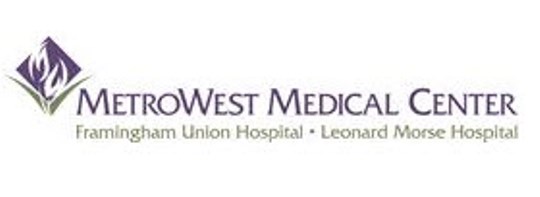In 2011, MetroWest HomeCare & Hospice, in partnership with MetroWest Medical Center, initiated a strategic and evidence based effort to reduce their emergent care visits and acute care hospitalization rates.
The effort was initiated with the formation in November 2011 of MetroWest's Re-Admission Intervention Strategy Council (RISC). The RISC includes representatives from management, nursing, rehabilitation, palliative care, and a heart failure nurse specialist. In addition, RISC invites specific expertise - for example, social worker, wound nurse, physician specialists - when needed to address particular issues. The Council took a multi-disciplinary approach to reducing unnecessary re-hospitalizations, improving quality of care and optimizing patient outcomes. In the beginning, RISC met every other week and eventually was decreased to a monthly meeting. Often special projects or educational programs require additional time of some RISC members.
Together these efforts have proven successful in reducing overall acute care hospitalization rates. In June 2012, only six months into RISC, MetroWest Home Care's readmission percentile ranked 46th in the state and 55th in the nation, according to CMS's Home Health Compare and CASPER reporting system. In May 2013, after all RISC initiatives had been implemented, MetroWest was ranked in the 4th percentile for the state and the 6th percentile for the nation. These numbers have been maintained.
The goals of RISC include:
- Use data collection and analysis to identify any trends in hospital transfers;
- Increase team awareness of patients who return to the hospital, especially repeat visitors;
- Use of Case Conferences and Plan of Care modifications to keep patients at home;
- Reduce hospital re-admissions and improve patient quality outcomes.
To identify trends, RISC developed a user-friendly data collection tool tracking patients transferred to the hospital. Based on the data collected and analyzed, RISC developed a dashboard to illustrate key trends, summarizing the primary reasons for hospitalization, risk factors, and which hospitalizations might be preventable based on the documentation, and why. For example, if a heart failure patient who does not follow the plan of care with weights, and whose Lasix dose was not adjusted accordingly, is re-hospitalized, then that re-hospitalization would be considered potentially avoidable through better medication management at home. An RISC Nurse Specialist completes the OASIS Transfer Assessment and reviews the clinical documentation. The whole RISC team presents data and cases at regular meetings of the hospital's Quality Council.
As a result of the RISC analyses, MetroWest's RISC has implemented a host of interventions and strategies to meet its readmission reduction goals:
- Created the Patient at Increased Risk for Transfer (PIRT) Alert Process, which identifies a patient that has been transferred to the hospital more than once in a 60-day episode. The PIRT Alert is communicated at time of transfer to the clinical managers and clinicians who have been involved with the patient's case so timely follow up and interventions can be implemented.
- Created and implemented Heart Failure & COPD Management Programs, in which high-risk patients for re-hospitalization with heart failure or chronic respiratory diagnoses are identified at intake for program protocol. Patients on program receive a specialized schedule of visits - such as medication intensive visit and case manager continuity - all of which are tracked for compliance and presented at RISC meetings. All patients in this program receive a program booklet as a teaching guide; cardiac and respiratory nurse and physician specialists contributed to the content of the final programs.
- Developed a specialized education program called the "RISC Think Tank" which introduces the RISC initiatives to all staff and provides them with tools and strategies to reduce avoidable re-hospitalizations. The RISC Think Tank is given at least annually and includes presentation of actual patient cases and informal open discussion to engage staff in sharing of new ideas and/or strategies.
- Created a collaborative nursing and therapy wound management program with 1.5 CEU accreditation.
- Developed tri-fold colorful and easy to read Patient & Family Guides (for e.g. Bladder Health, Dehydration Prevention, and Constipation.)
RISC continues to meet to review trends and discuss innovative strategies to keep patients at home and out of the hospitals.

